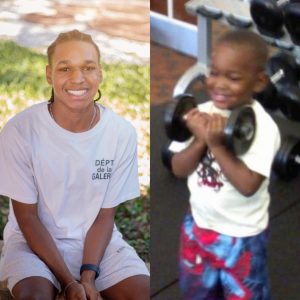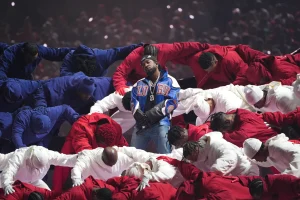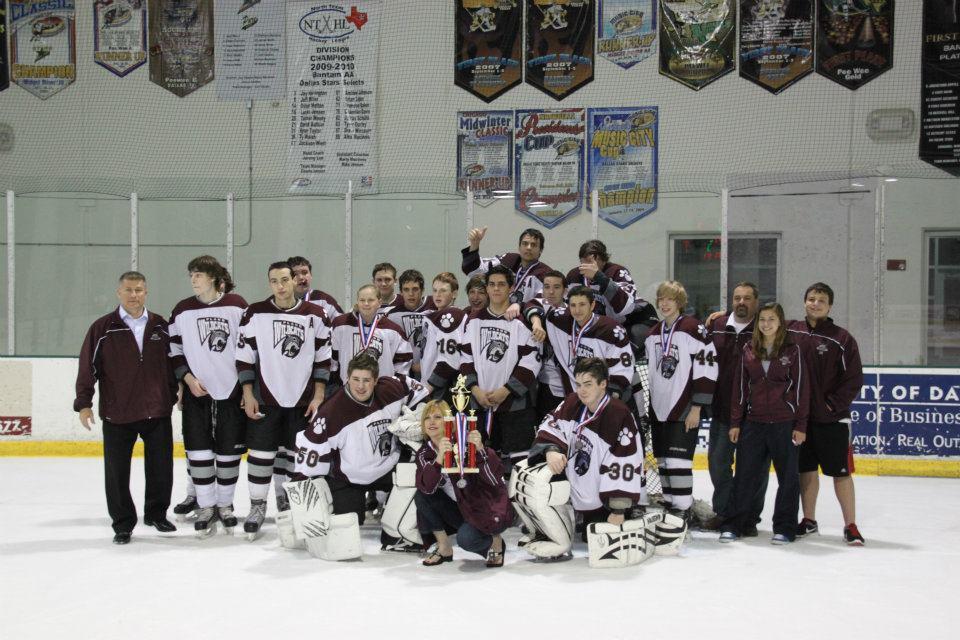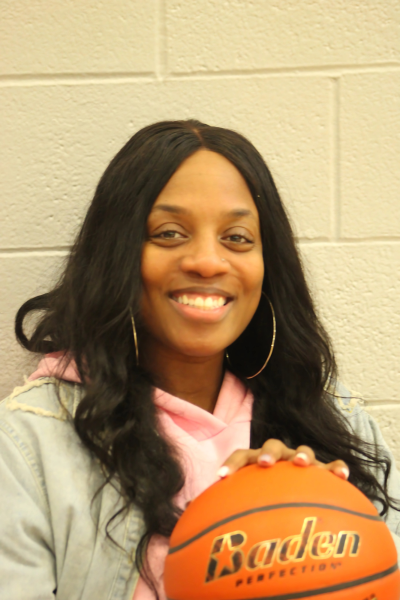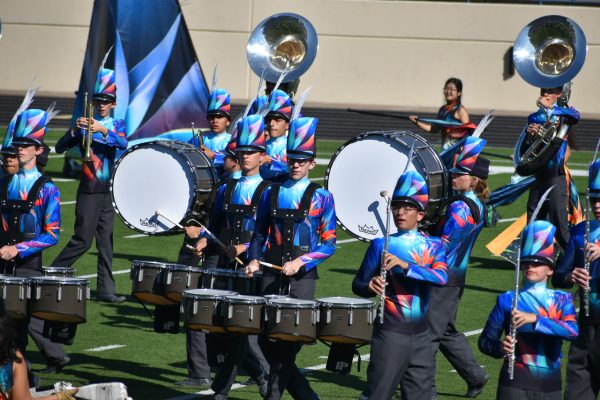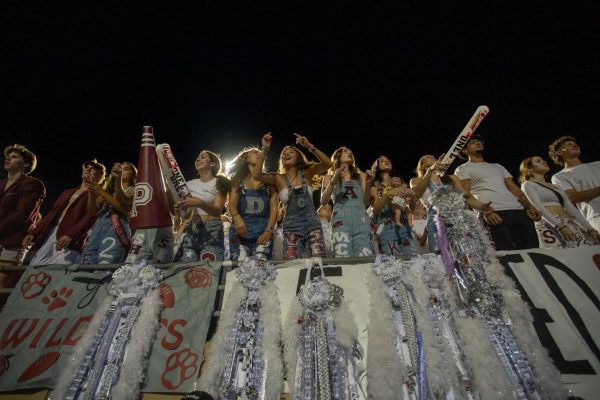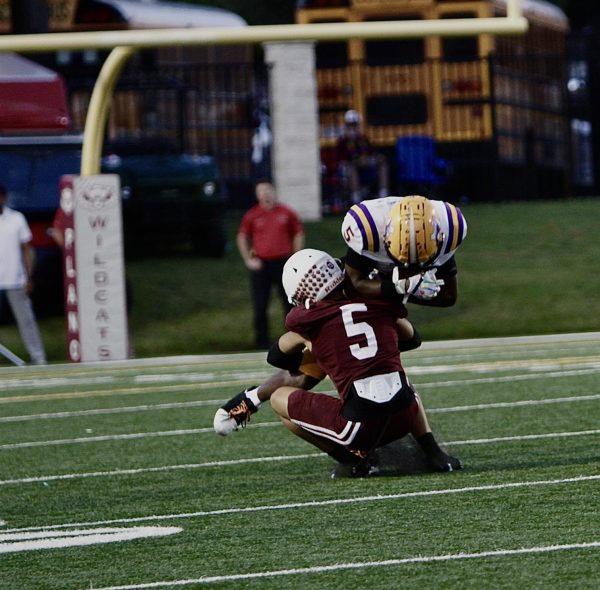Powder puck girls: Female hockey players face icy reception
Their hearts belong to the ice, no matter how they are treated on or off it.
Juniors Sarah Norris, Alex Brown and Vines freshman Jessica Rea enter the boys’ world of hockey as members of the junior varsity hockey team.
Norris’ Canadian mother has always pushed her to commit to hockey; she has been playing roller hockey since the age of 5 and ice hockey since age 10. She played on the Alliance 16 and under girls’ hockey team from 2011 to 2012, and joined the Plano team last summer.
Unlike Norris, Brown has always been the only girl on her hockey team. She joined the JV team three years ago and has been assistant captain since November. She leads alongside team captain sophomore Kyle Jones, who said he supports the girls and treats them as equals.
It is Jones’ second year on the JV team and first year as team captain, though he has had experience as captain of his prior teams. As a child, Jones explored a range of sports, but said he never felt like he belonged. He remembers seeing a hockey game on his parent’s television, asking his parents to sign him up for lessons and falling for the sport the moment his skates hit the rink. It has been nine years since.
Jones not only accepts the differences between his girl and guy teammates, but he appreciates them. According to Jones, one of the issues the team struggles with is motivation. When the team is feeling down after a game, Jones said that the girls tend to be the first ones to come up with new and positive solutions to bring up their spirits on and off the rink.
“It’s pretty cool to see them able to compete and out-achieve most guys in the sport. I have no problem with it, and I am glad to see them be a part of the team. They’re here to play the sport they love. That’s what the guys are here for too. The girls are always the ones screaming to their teammates ‘we’re still in this’, ‘keep pushing it’, and ‘we can do it.’ If a teammate is down, they aren’t afraid to talk to him, as opposed to guys who wouldn’t normally be the first to do that. They bring us closer together,” Jones said. “Alex is a great captain. I personally don’t like thinking of it as captain versus assistant captain because anyone can be a leader of the team, no matter what letter is on your jersey. She definitely deserves to be a captain on this team.”
Brett Sammon, Plano’s JV coach for the last eight seasons, has coached seven girls in his 19 years of head coaching experience. However, he had never coached three girls at the same time. He said his expectations for the girls remain the same as those for the boys and their skill levels are comparable.
“The girls, in my eyes, are the same as the boys on a hockey team, competitive athletes looking to play for their school, improve their skills, and win hockey games,” Sammon said. “Speed is a concern for the girls, as well as shooting strength, but puck handling, passing and hockey sense are better than or equal to that of their teammates.
Although the team is coed, the girls still change in a separate locker room and said they feel a disconnection from the guy teammates.
“We don’t have the team bonding in the locker room,” Norris said. “The guys have a negative attitude about it because besides two of them, none of them have played on a team with girls on it. They don’t know how to take it. They communicate less and don’t want to involve themselves with us. They go into the situation thinking we suck without even watching us play in the first place. They treat us like we’re girls – like we don’t understand what we’re doing and like we’ve never played hockey before. It’s like, I’ve been playing for 11 years; I know what I’m doing.”
Junior Oliver Plott is one of the guys who is familiar with having girls on a hockey team. On his very first select hockey team, Plott played with a girl, unlike most of the younger boys.
“Some guys probably aren’t used to having girls on the team,” Plott said. “Hockey is predominantly a male sport, but there are some girl teams. With the segregation of guys and girls, there are different rules and overall different norms. Integrating guys and girls causes fear of the unknown; some guys just don’t know how to handle it. Naturally, some of the guys will resist having girls influence team decisions, but hopefully they will come around. It’s not like they’re animals, and they have every right to be a part of the team, just as the guys do, and believe me, if anyone ever messes with the girls, one of the guys has their number.”
Plott confessed that before the boys got to know the girls, they did act differently in their presence. However, he said the cautious behavior resulted mostly out of respect for the girls.
“Generally, when you get a group of guys together in a locker room, there are bound to be curse words and inappropriate topics discussed only by close-knit people, and to be completely honest, at first, we kind of filtered what we said. As we have gotten to know the girls better, they have become less like girls and more like teammates who are accustomed to the vulgar speech tossed around at the rink. Also, we didn’t want to cross any lines or offend them. The separate locker rooms do pose a social speed bump, but I have on more than one occasion used the girls’ locker room to my advantage in some team pranks. No one ever looks for their bag in the girls’ room,” Plott said. “As I got to know them, I started talking to them like all my other friends, guys or girls. I think treating them as another team member and not giving them any special treatment has made them more of a part of the team. I feel like it’s good to give them a voice against the usual all-boys captain panel.”
However, the girls have faced some setbacks. A coach once told Rea that she wasn’t suited to play at her age because of her gender. Norris feels that some of the guys don’t listen to the girls’ constructive criticism and dismiss their efforts overall.
“If you try to sit next to them, some of them tell you to scoot over, and it’s like, do I smell bad? We’re unwanted,” Norris said. “They’d be happier if we weren’t on the team. But they wouldn’t know what they were doing without us, and they would learn to appreciate us more.”
Jones has recognized these issues. He and Sammon have addressed them accordingly by letting the boys know that they need to put an end to their negative comments and accept the girls as equals.
“I personally think that those teammates were jealous of having a girl on the team,” Jones said. “They probably felt threatened by the three girls who were on ice with them, particularly when those girls are just as good, and even sometimes better than those who complain about it.”
Despite the incidents, the girls support each other no matter how they are received by the rest of the team.
“We don’t act like girls. We try to get along with them, but we don’t let them get to us,” Norris said. “We understand how it feels to be the only girl on the team, and we stick together.”
The girls’ passion for hockey overcomes all of their conflicts. Although Norris is quitting next year, she will continue skating and working at the Plano Dr Pepper Star Center as a skate guard and party host. Brown, on the other hand, is planning on playing hockey in college.
“It’s something you’ve done all your life and you know you’re never going to stop doing it,” Brown said. “The smell of the ice, the sound of it – it’s weird to say, but that’s how it feels. It’s just the feeling of lacing your skates up and getting ready. The moment you step on the ice, something happens, and suddenly nothing else matters. It doesn’t matter how early I have to wake up because I want to skate. Honestly, it’s worth going through it all and dealing with the boys, because I want to play and I want ice time and I want to get better. I’m not here to be liked. I’m here to play hockey. I go out on the ice and I know that this is my sport.”
Your donation will support the student journalists of Plano Senior High School. Your contribution will allow us to purchase equipment and cover our annual website hosting costs.
Senior Priyanka Hardikar is looking forward to her second year in newspaper, this year as an editor. As online editor, she hopes to take the online publication...


